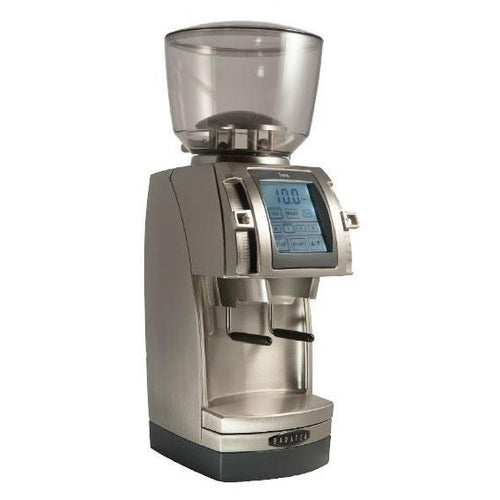Industrial Coffee Grinder Maintenance Tips for Long-Lasting Performance
Industrial Coffee Grinder Maintenance Tips for Long-Lasting Performance
Blog Article
Industrial Coffee Grinder Guide: Increase Performance and Top Quality
In the competitive landscape of coffee production, picking the ideal industrial coffee grinder plays an essential duty in enhancing both effectiveness and item quality. Understanding the subtleties of various mill types and vital functions-- such as adjustable grind setups and durable building and construction-- can considerably affect the final taste profile of the coffee.
Comprehending Mill Kinds
When picking a commercial coffee mill, recognizing the various types available is vital for enhancing both taste removal and functional performance. Both primary sorts of grinders are blade mills and burr mills. Blade grinders use sharp blades that slice coffee beans into irregular sizes, bring about uneven removal and possibly unfavorable tastes. While blade mills are often much more suitable and inexpensive for small procedures, they are normally not advised for industrial usage.

Ultimately, selecting the right kind of grinder is important to preserving top quality and effectiveness in coffee production, making it essential for companies to spend in premium burr mills for optimum outcomes.
Key Features to Think About
Selecting an industrial coffee grinder calls for mindful factor to consider of several crucial attributes that can substantially affect both efficiency and the total coffee experience. Among the primary facets to assess is the grinding device. Burr mills are usually chosen over blade mills, as they give a regular grind dimension, which is crucial for optimum extraction and taste.
Another important function is the grinder's capability. A functional mill with numerous settings allows you to customize the work size to various brewing methods, enhancing the coffee's taste profile.
The building material likewise plays a role in longevity and maintenance. Stainless-steel elements usually supply durability and are less complicated to clean, which is necessary for preserving health standards. Lastly, examine the grinder's noise degree, particularly in a hectic café or production setting, where excessive noise can be disruptive. Investing in a mill that balances these features can greatly enhance both operational effectiveness and the high quality of the coffee served.
Optimizing Grinding Process
To attain the very best cause coffee preparation, maximizing the grinding process is vital. The grind size dramatically affects removal, flavor, and overall high quality of the brewed coffee. Various brewing approaches call for specific work sizes; for instance, espresso requires a great work, while French press requires a rugged appearance. Understanding the connection in between grind size and developing approach is the very first step in optimization.


Additionally, monitoring the grinding speed can maximize the process. Slower grinding frequently generates much less heat, preserving fragile flavors and scents. Conversely, faster grinding may generate too much heat, negatively impacting the coffee's quality.
Upkeep and Treatment Tips
Correct upkeep and treatment of industrial coffee grinders are essential for guaranteeing ideal performance and longevity. Normal cleaning is the structure of get redirected here maintenance; deposit buildup can affect taste and grinding effectiveness. It is a good idea to cleanse the grinder after each usage, cleaning down the exterior and eliminating any type of coffee grounds from the burrs.
Additionally, inspect the grinding burrs for deterioration. Boring burrs can jeopardize work consistency, so they should be changed as required. Industrial Coffee Grinder. Periodically adjusting the mill is also essential, as this preserves the preferred work size for different brewing approaches
Lubrication of relocating components should be performed according to the supplier's specifications, as this lowers rubbing and lengthens the life of the equipment. It is vital to make use of food-grade lubricating substances to ensure safety and security and compliance with wellness laws.
Last but not least, maintain the mill in a secure and completely dry environment to prevent rust and corrosion. By sticking to these maintenance and care pointers, drivers can boost the efficiency of their industrial coffee mills while guaranteeing top notch result and expanded functional life.
Roi Evaluation
Assessing the roi (ROI) for industrial coffee mills is critical for businesses seeking to enhance their coffee production capacities. A complete ROI analysis aids figure out the economic practicality of purchasing top notch grinders, enabling businesses to consider the first costs against potential gains.
Evaluate the acquisition rate of the mill, consisting of setup and any kind of essential alterations to existing framework. High-performance mills frequently lead to lowered grinding time and increased throughput, which can dramatically improve productivity.
Additionally, take into consideration the influence on item top quality. Industrial Coffee Grinder. Superior mills yield an even more consistent grind dimension, which can image source boost taste accounts and client complete satisfaction, inevitably driving sales. By boosting the high quality of the final item, services can warrant higher rates, resulting in enhanced profits
Verdict
In summary, an industrial coffee grinder plays a pivotal role in boosting both efficiency and item top quality within coffee production. Eventually, the strategic read here investment in a dependable mill adds dramatically to improved revenue and competition in the coffee sector.
In the affordable landscape of coffee manufacturing, selecting the appropriate industrial coffee grinder plays a crucial role in improving both efficiency and product top quality. The 2 key kinds of grinders are blade grinders and burr grinders. Within the burr mill classification, there are flat burr grinders and conical burr mills, each with its advantages. Burr grinders are typically preferred over blade grinders, as they provide a regular grind size, which is essential for ideal removal and flavor.
In summary, an industrial coffee mill plays a crucial function in improving both performance and product high quality within coffee production.
Report this page